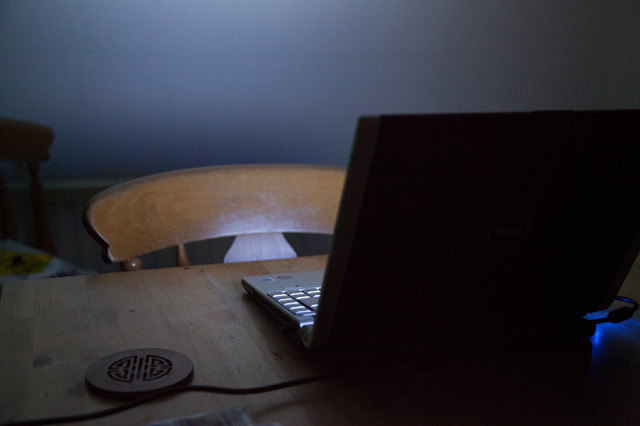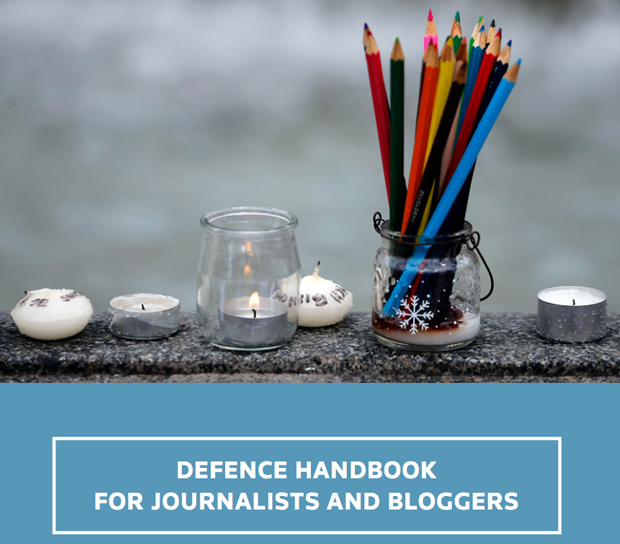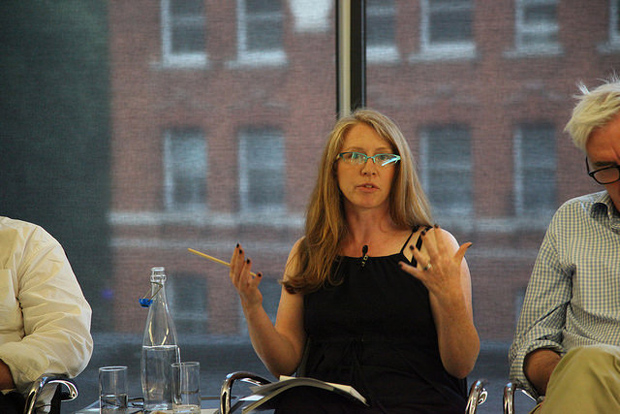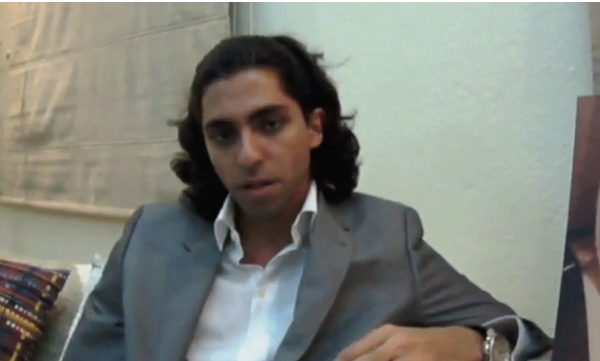Index relies entirely on the support of donors and readers to do its work.
Help us keep amplifying censored voices today.
[vc_row][vc_column][vc_column_text]

Photo: Tom Page/Flickr
This article is from the autumn issue of Index on Censorship magazine, which focuses on anonymity.
I have a name. I am not anonymous. But what if I didn’t have a name? What if I could enjoy the luxury of being safe at home in Bangladesh, and not far away in Germany?
I could have distanced myself from my identity, adopted a pseudonym and continued to write in Bangladesh. Had I done so, my family wouldn’t have to spend each moment in fear and anxiety. My sister wouldn’t have to wake up from nightmares about rape threats. But I am not anonymous. I carry my name and history with me. And so the possibility of an unnatural death haunts me.
Since 2013, my name has surfaced on multiple “hit lists” targeting Bangladeshi bloggers and other activists. I still regularly receive death threats from religious extremists on Facebook and other social media. One simply told me, “It’s your turn now.”
My words often create problems for others. I see myself as writing for the freedom of various groups, for the rights of oppressed communities, for women, for the sexually marginalised. In my debut book Chastity Versus Polygamy, I addressed the patriarchal notion of purity that is assigned to women’s sexuality; this was considered controversial and it enraged many.
I strongly believe that all human beings possess an equal right to express themselves, to assert their ideas and to be recognised for who they are and what they want to be. When the identity of the writer is out in the open, along with a certain level of insecurity comes a burden of responsibility that commits the writer to his or her words. This is why anonymity never appealed to me. I had faith in the democratic setup of my country, Bangladesh. But the state failed to uphold our freedom by suggesting we should stop writing, rather than that terrorism should stop. So I left.
Anonymous bloggers and activists in Bangladesh come from all parts of the ideological spectrum. They include religious radicals, communists, liberals. Unfortunately, certain sections of this anonymous community aim to create chaos, rather than a constructive democratic debate. A number of them publish hate speech, or post videos which are meant to incite violence.
Generally, however, the bloggers are on the receiving end of aggression. Sometimes, even anonymity is no protection. Those who would silence them are often incredibly adept at technological espionage, and can all too easily crack their identities. In March 2015, anonymous atheist blogger Washiqur Rahman Babu was traced and killed in broad daylight outside his residence. Even I didn’t know his identity at the time.
In the face of threats, therefore, going anonymous is hardly a foolproof solution. However, it may not always be feasible to declare one’s identity under dire circumstances, which is the case in many places across the world right now. Anonymity might turn to be one of the necessary shields in the larger, longer battle for free speech.
This article is from the autumn issue of Index on Censorship magazine.
Ananya Azad, a Bangladeshi writer and blogger, is currently in exile in Germany. His father, author Humayun Azad, was the victim of assassination attempts, and later died in mysterious circumstances.
You can order your copy of the latest issue here, or take out a digital subscription via Exact Editions. Copies are also available at the BFI, the Serpentine Gallery, MagCulture, (London), News from Nowhere (Liverpool), Home (Manchester), Calton Books (Glasgow) and on Amazon. Each magazine sale helps Index on Censorship continue its fight for free expression worldwide.
[/vc_column_text][/vc_column][/vc_row][vc_row][vc_column][vc_custom_heading text=”From the Archives”][vc_row_inner][vc_column_inner width=”1/3″][vc_single_image image=”91922″ img_size=”213×289″ alignment=”center” onclick=”custom_link” link=”http://journals.sagepub.com/doi/pdf/10.1177/030642208701600613″][vc_custom_heading text=”Testimony of an ex-censor” font_container=”tag:p|font_size:24|text_align:left” link=”url:http%3A%2F%2Fjournals.sagepub.com%2Fdoi%2Fpdf%2F10.1177%2F030642208701600613|||”][vc_column_text]June 1987
Once a censor in the Syrian Ministry of Information, the anonymous source details the invasion of privacy and censorship the government employs.[/vc_column_text][/vc_column_inner][vc_column_inner width=”1/3″][vc_single_image image=”80637″ img_size=”213×289″ alignment=”center” onclick=”custom_link” link=”http://journals.sagepub.com/doi/pdf/10.1177/0306422015591456″][vc_custom_heading text=”Blogging in Bangladesh” font_container=”tag:p|font_size:24|text_align:left” link=”url:http%3A%2F%2Fjournals.sagepub.com%2Fdoi%2Fpdf%2F10.1177%2F0306422015591456|||”][vc_column_text]June 2015
A series of murders of secular bloggers by religious fundamentalists in has presented clear warnings for bloggers to watch what they say.[/vc_column_text][/vc_column_inner][vc_column_inner width=”1/3″][vc_single_image image=”89164″ img_size=”213×289″ alignment=”center” onclick=”custom_link” link=”http://journals.sagepub.com/doi/pdf/10.1177/0306422010362466″][vc_custom_heading text=”Egyptian gate to freedom” font_container=”tag:p|font_size:24|text_align:left” link=”url:http%3A%2F%2Fjournals.sagepub.com%2Fdoi%2Fpdf%2F10.1177%2F0306422010362466|||”][vc_column_text]March 2010
Mohamed Khaled reports that the Egyptian government continues to harass bloggers, but they’ve become a vital source of information even for the state media. [/vc_column_text][/vc_column_inner][/vc_row_inner][vc_separator][/vc_column][/vc_row][vc_row][vc_column width=”1/3″][vc_custom_heading text=”The unnamed” font_container=”tag:p|font_size:24|text_align:left” link=”url:%20https%3A%2F%2Fwww.indexoncensorship.org%2F2017%2F09%2Ffree-to-air%2F|||”][vc_column_text]The autumn 2016 Index on Censorship magazine explores topics on anonymity through a range of in-depth features, interviews and illustrations from around the world.
With: Valerie Plame Wilson, Ananya Azad, Hilary Mantel[/vc_column_text][/vc_column][vc_column width=”1/3″][vc_single_image image=”80570″ img_size=”medium” alignment=”center” onclick=”custom_link” link=”https://www.indexoncensorship.org/2016/11/the-unnamed/”][/vc_column][vc_column width=”1/3″][vc_custom_heading text=”Subscribe” font_container=”tag:p|font_size:24|text_align:left” link=”url:https%3A%2F%2Fwww.indexoncensorship.org%2Fsubscribe%2F|||”][vc_column_text]In print, online. In your mailbox, on your iPad.
Subscription options from £18 or just £1.49 in the App Store for a digital issue.
Every subscriber helps support Index on Censorship’s projects around the world.
![]() SUBSCRIBE NOW[/vc_column_text][/vc_column][/vc_row]
SUBSCRIBE NOW[/vc_column_text][/vc_column][/vc_row]

The new Defence Handbook for Journalists and Bloggers from the Thomson Reuters Foundation, Reporters Without Borders and law firm Paul Hastings
A new handbook aims to provide journalists and bloggers worldwide with guidance on the international legal framework protecting their rights to freedom of expression.
Produced by the Thomson Reuters Foundation, Reporters Without Borders, and law firm Paul Hastings, the Defence Handbook for Journalists and Bloggers focuses on how international legal principles apply to journalists’ work. It also includes previous decisions and recommendations made by international and regional bodies and courts on aspects of freedom of speech.
“Journalists around the world are more and more under threat and often become targets,” said Monique Villa, CEO of the Thomson Reuters Foundation. “Terrorist groups, but also powerful lobbies and a number of governments are increasingly trying to censor the media, preventing opinion sharing and the release of vital information to the public. Now more than ever, journalists need to be brave, avoid self-censorship, and be aware that they can seek refuge in international law. This guide is a very powerful weapon.”

Index CEO spoke at the launch of the handbook (Photo: Thomson Reuters Foundation)
Index on Censorship chief executive Jodie Ginsberg spoke at the launch of the handbook, outlining the threats that Index has identified in its work mapping media freedom in the European Union and neighbouring countries. Since Index launched the project in mid-2014 more than 800 incidents have been reported to the map. Ginsberg described a climate of fear in which governments crack down increasingly on the media and free expression more generally, and cited a lack of awareness among some media professionals about the laws that protect them. “Uncertainty — when journalists don’t know their rights — leads to self-censorship,” she said.
Other speakers at the event in London included Christophe Deloire, secretary general of Reporters Without Borders; John Lloyd, senior research fellow at the Reuters Institute; Sylvie Kaufmann, editorial director and columnist at Le Monde; lawyer William Bourdon; and journalist Owen Bennett-Jones.
This article was posted on 3 July 2015 at indexoncensorship.org
Index on Censorship and IFEX members call for the release of Alaa Abd El Fattah and all those unjustly detained in Egypt
The military “interim government” in Egypt is cracking down on virtually all meaningful form of assembly, association, or opposition.
Following the passage of a November 2013 law banning peaceful protest, dozens of activists and organizers have been sent to prison. Among them is Alaa Abd El Fattah, software guru, blogger and political activist.
On the night of November 28th, security forces raided Alaa’s home, beat him and his wife when asked to see their warrant, and took and held him overnight, blindfolded and handcuffed, in an unknown location. Currently, he is held at Tora Prison, Egypt’s notorious maximum security detention center, historically used to house men suspected of violent crimes and terrorism.
But Alaa is not being prosecuted for crimes of violence. A critic of repressive state practices and a staunch advocate of free information, free and open source software, and Arabic localization in the Middle East, he was one of the first Egyptian netizens facilitating a movement for political change around a simple idea: freedom of expression.
His wildly popular blog—established with his wife, Manal—helped spark a community of bloggers in the Arab World committed to the promotion of free speech and human rights. It won the Reporters Without Borders award at the 2005 Bobs. Their groundbreaking website, Omraneya, collected blog entries across the Arab World, archiving dissent in the face of repression. As put by one popular independent media outlet: “[Omraneya is] at times the house of alternative expression and at others the amplifier of muted voices.”
Following the uprising of January 25, 2011, Alaa continued to promote free expression through online platforms. He started a nation-wide people’s initiative enabling citizen collaboration in the drafting of the Egyptian Constitution. He initiated and hosted Tweet-Nadwas (“Tweet-Symposiums”), that brought activists and bloggers from across the world into Tahrir Square, to participate in open format dialogue about tough issues ranging from Islamism to Economic Reform.
Without looking down at our feet, let’s look forward and envision the perfect state; I myself don’t want a state but I know that isn’t possible. Instead, I must focus on the steps that might lead me to build the ‘good’ state.” – Alaa Abd El Fattah (Tweet Nadwa, June 14 2011).”
Alaa has been jailed or charged under every government to take power in Egypt. In 2006, when he was only 22, he was jailed by the Mubarak government. The Supreme Council of the Armed Forces (SCAF) jailed him in 2011. Morsi brought a case against him in 2013. And he is now imprisoned by the current military government. He is not alone in this cycle of persecution. Alongside him now in prison are activists Ahmed Maher, Mohamed Adel, and Ahmed Douma—all of whom were also targeted by Egypt’s recent regimes. Thousands of other young people are in prison or unaccounted for.
Alaa’s mother, Laila Soueif, one of the founders of the Kefaya protest movement, which is widely credited as one of the key precursors to the January 2011 uprising, commented:
Alaa is one of the most outspoken and uncompromising critics of state violence and repression of his generation. At this particular juncture, those in power are trying to sell the myth that the whole country is united behind them against the Muslim Brotherhood and their allies. The fact that Alaa, who was very vocal in his criticism of the Brotherhood while Morsi was president, is condemning – even more strongly – the current criminal behaviour of the police and the army explodes their myth. Particularly as he is not alone in taking this position. Arresting him and demonizing him in the media is a message to critics of the regime to shut up.”
The current government has already handed Alaa (together with his sister Mona Seif) a one year suspended sentence in a similar, but separate, trial. Current charges may find Alaa facing additional years. Ahmed Seif, prominent human rights lawyer and father of Alaa Abd El Fattah says:
The Prosecution has done everything in its power to impede Alaa’s appeal against his imprisonment on remand. It has been more than a month since the Prosecution completed its investigations and referred the case to the Criminal Court, but lawyers have still not been allowed access to the case file, and neither a district nor a date have been set for the trial.”
As the third anniversary of the January 25 revolution draws near, we express our concern that Alaa’s case marks a worrying trend for civil liberties in Egypt.
The undersigned demand the immediate release and a fair trial for all those unjustly detained in accordance with the Universal Declaration of Human Rights and the International Covenant on Civil and Political Rights, to which Egypt is a signatory.
Signed,
Electronic Frontier Foundation
ActiveWatch – Media Monitoring Agency
Afghanistan Journalists Center
Arabic Network for Human Rights Information
ARTICLE 19
Association for Freedom of Thought and Expression
Association of Independent Electronic Media
Bahrain Center for Human Rights
Canadian Journalists for Free Expression
Centre for Independent Journalism – Malaysia
Derechos Digitales
Egyptian Organization for Human Rights
Foundation for Press Freedom – FLIP
Freedom Forum
Freedom House
Globe International Center
Human Rights Watch
Independent Journalism Center – Moldova
Index on Censorship
Initiative for Freedom of Expression – Turkey
Journalists’ Trade Union
Media, Entertainment and Arts Alliance
Media Foundation for West Africa
Media Institute of Southern Africa
Media Rights Agenda
National Union of Somali Journalists
Norwegian PEN
Pacific Islands News Association
Pakistan Press Foundation
PEN American Center
PEN Canada
PEN International
Public Association “Journalists”
World Association of Newspapers and News Publishers
Rasha A. Abdulla, Ph.D., The American University in Cairo
Amir Ahmad Nasr, author of My Isl@m
7iber
Access
Arab Digital Expression Foundation
Association for Progressive Communication
Digital Rights Foundation, Pakistan
Freedom of the Press Foundation
Global Voices Advocacy
International Federation of Journalists Asia-Pacific
Internet Sans Frontières (Internet Without Borders)
Jadaliyya
Mada Masr
Social Media Exchange (SMEX)
The Workshops (Egypt)
Activists are continually harassed and punished for standing up and speaking out about social and political issues they feel are unjust in their country. Here are five activists whose government didn’t quite like what they had to say.

Raif Badawi- Saudi blogger punished after calling for ‘day of liberalism’
It would seem absurd to most people that “liking” a Facebook page could land you in jail. However, that was one of the crimes charged against Raif Badawi after he “liked” an Arab Christian page on the social networking site. The young co-founder of the Liberal Saudi Network, a website that has since been shut down, was arrested in June 2012 for “insulting Islam through electronic channels”, including insulting Islam and portraying disobedience.
In January, a court had refused to hear apostasy charges against Badawi, concluding that there was no case. Apostasy carries the death sentence in Saudi Arabia. He has since been sentenced to 600 lashes and seven years in jail.
Eskinder Nega- Ethiopian blogger
Eskinder Nega is a well-known name in Ethiopia whose journalism has been recognised by major organisations globally; he is currently serving 18 years in jail for supposedly violating the country’s anti-terrorism legislation.
Nega was arrested in September 2011 after publishing, somewhat ironically, an article criticising his government’s detainment of journalists as suspected terrorists, in particular the arrest of Ethiopian actor and government critic Debebe Eshetu . Along with 23 others, he was then convicted of having links with US-based opposition group Ginbot Seven, an organisation Ethiopia had recently added to its list of terrorists.
This is not the first time Nega has been imprisoned for speaking out in defense human rights. Meles Zenawi’s government handed him a total of eight sentences over the past decade. He is also not the only journalist to face prosecution under the Ethiopian government. According to the Amnesty Annual Report 2013 a number of journalists and political opposition members were sentenced to lengthy prison terms on terrorism charges for calling for reform, criticizing the government, or for links with peaceful protest movements. Much of the evidence used against these individuals consisted of examples of them exercising their rights to freedom of expression and association.
Shi Tao- Stung by Yahoo in China
2013 was a good year for Shi Tao; the Chinese reporter was finally released after documents leaked by Yahoo to his government saw him spend the past eight and a half years behind bars.
Tao sent details of a government memo about restrictions on news coverage of the Tiananmen Square massacre anniversary to a human rights forum in the United States. He was subsequently arrested in 2004 and sentenced the following year charged with disclosing state secrets.
Reporters Without Borders said the branch of Yahoo in Hong Kong assisted the Chinese government in linking Shi Tao’s email account to the message containing the information he had sent abroad. Yahoo was heavily criticised at the time by human rights activists and U.S. legislators with Jerry Yang, co-founder of Yahoo, publicly apologising to Shi Tao’s family.
Tao was released 15 months before the end of us 10 year restriction. It is unclear why his early release occurred.
Ngo Hao- Vietnamese blogger
You’re never too old to go to prison as 65-year-old activist Ngo Hao found out after he was handed 15 year sentence earlier this year on charges of attempting to overthrow the Vietnamese government. Accused of writing and circulating false and defamatory information about his government and its leaders, Hao was arrested in February. Further accusations included a peaceful attempt to instil an Arab Spring-style revolution and of working with dissident group Bloc 8406.
Reporters Without Borders criticised Hao’s trial for a lack of his right to a fair defence and the unwillingness to allow any family members to attend the hearing asides from his son.
Just weeks before an appeal court in the south of the country also sentenced two bloggers, Nguyen Phuong Uyen and Dinh Nguyen Kha. This takes the estimated total of bloggers behind bars in Vietnam to 36.
Jabeur Mejri- Tunisian blogger seven and a half years for posting on Facebook
After the 2011 Arab Spring many Tunisian bloggers were able to express themselves freely; a stark contrast to the censorship, arrest and jail they had come to expect under the rule of former President Ben Ali. One such blogger was Jabeur Mejri who, in March 2012, posted a cartoon of the Prophet Mohamed on his Facebook page, a post that sentenced the blogger to over seven years in jail for “attacking sacred values through actions or words” and “undermining public morals”.
The rise of ‘opinion trials’ has become a concern to many with Mejri being the first person sent to jail under the procedure. Lina Ben Mhenni told Amnesty International: “You can go to jail for a word or an idea. ‘Opinion trials’ have become part of our daily lives. As in many other countries, Tunisia’s taboo topics are religion and politics. You can’t criticize the government in general or the Islamists in particular.”